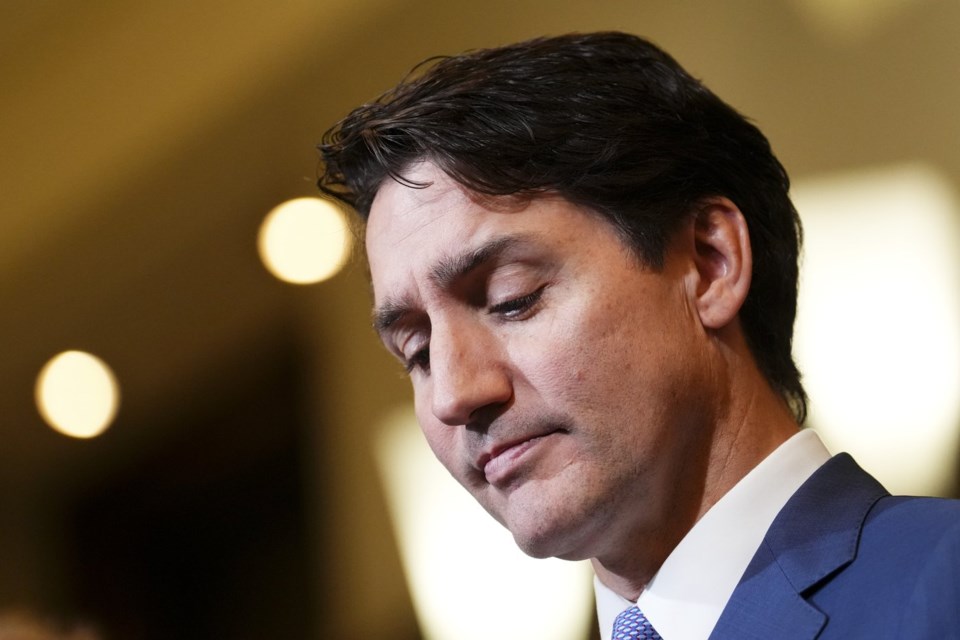OTTAWA ŌĆö Another week, another raft of imminent challenges to Justin Trudeau's leadership of both the country and the Liberal Party.
The prime minister, whose presence at the party helm has stirred criticism and calls for his resignation from within his own ranks, is facing two deadlines in the coming days: one from Liberal MPs who want him to resign and another from the Bloc Qu├®b├®cois as they threaten to trigger an early election.
Discontent with Trudeau's leadership has been mounting for months amid persistently dismal approval ratings and two recent byelection losses in long-time party strongholds.
At a Liberal caucus meeting Wednesday, 24 MPs delivered a letter to the prime minister asking him to resign and giving him until Monday to respond.
Trudeau told these MPs that he would reflect on what they had to say during the three-hour meeting, but one day later, he told reporters he would stay on as Liberal leader.
"WeŌĆÖre going to continue to have great conversations about what is the best way to take on Pierre Poilievre in the next election ŌĆö but thatŌĆÖll happen with me as leader going into the next election,ŌĆØ he said, as a group of Liberal MPs gathered at the press conference applauded.
Liberal MP Sean Casey, who signed the letter, told reporters later on Thursday that he's "moving on" following the prime minister's comments.
"This is a decision that he had every right to make, and he made it. I did my job by voicing what I was hearing from my constituents," Casey said.
"Now I've got to take my energy and direct them to winning my seat and not on internal party matters. As far as I'm concerned, it's closed."
Lori Turnbull, a political science professor at Dalhousie University, says the challenge for the dissenting Liberal MPs is that there's nothing they can do to force the prime minister to change his mind.
"The problem is that there's no 'or else,' other than leaving the caucus themselves and/or voting to defeat the government," Turnbull said.
"Which would mean they end up precipitating an election with Trudeau as a leader, which is the thing they don't want to do."
Meanwhile, the Bloc has given the Liberal government until Tuesday to pass two pieces of legislation that would increase old-age security payments for seniors and bolster supply management.
If the Liberals do not comply, Bloc Leader Yves-Fran├¦ois Blanchet has said his party will begin discussions with other opposition parties about toppling the minority government.
Most Liberals voted against a Bloc motion earlier this month calling for the government to give a royal recommendation to a bill that would increase pensions for seniors under the age of 75 by 10 per cent, a plan estimated to cost $16 billion over five years.
The Liberals increased old age security payments for people over the age of 75 in 2022, with the intention of targeting the most vulnerable seniors, but the other opposition parties have backed the Bloc push to expand the measure to those aged 65 to 74.
Turnbull said the Bloc turning on the government won't necessarily mean an imminent election, since it would take all three major opposition parties to trigger one.
"The NDP will likely continue to support the government for a while, in which case the Bloc is free to stand against the government ... and not have the consequence of an immediate election," she said.
Turnbull says New Democrats, who tore up their supply-and-confidence agreement with the Liberals last month, need more time to distinguish themselves from the governing party before heading into a federal election.
This report by The Canadian Press was first published Oct. 27, 2024.
Nojoud Al Mallees, The Canadian Press



